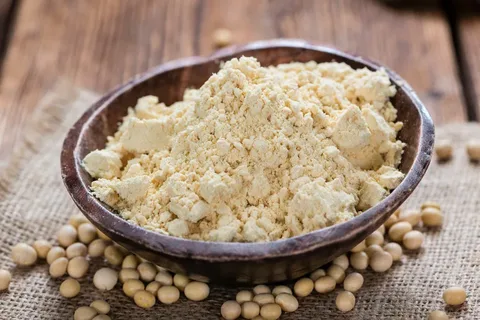Soy is one of the most versatile crops in the world. Soybeans contain high-quality protein that is essential for human health and nutrition. Soy protein has numerous benefits for health and is being recognized more and more for its positive effects. This article will explore the importance of soy protein and its key roles in promoting well-being.
What is Soy Protein?
Soybeans contain around 40% protein by weight, making them one of the richest vegetable sources of complete protein. Complete protein means that soy protein contains all nine essential amino acids that humans need to obtain from their diet. When soybeans are processed to make different soy foods like tofu, tempeh, edamame or soy milk, the majority of the protein content comes from soy protein. Soy protein can be purchased as supplements in the form of powder, pills or bars and provides a plant-based source of high-quality protein.
Health Benefits of Soy Protein
Some of the key benefits of including soy protein in your diet include:
Heart Health
Studies have found soy protein consumption to be beneficial for lowering LDL (bad) cholesterol levels. A meta-analysis published in the American Journal of Clinical Nutrition found that 25 grams of soy protein per day reduced LDL cholesterol by around 3%. As cholesterol levels are a major risk factor for heart disease, incorporating soy protein can support heart health.
Bone Health
Soybeans are an excellent source of plant-based calcium, magnesium, and other bone-healthy minerals. A review published in the Journal of Nutrition found that soy protein intake was associated with greater bone mineral density and lower risk of fractures. The minerals in soy protein promote bone health as we age.
Menopause Relief
Isoflavones found in soy may help relieve some uncomfortable menopause symptoms like hot flashes. A study in the journal Climacteric found that women who consumed soy foods experienced fewer hot flashes and better quality of life during menopause compared to those with less soy intake.
Muscle Gain
Soy protein contains all essential amino acids and provides a complete protein profile comparable to whey and other animal proteins. This makes it an excellent choice for vegetarians and vegans seeking to gain or maintain muscle mass through exercise and strength training. A study in the journal Nutrients found soy protein consumption just as effective as whey for building muscle after workouts.
Is Soy Protein Safe?
The health benefits of soy protein are well established, but some people have concerns about possible risks:
Hormones
Soybeans contain weak phytoestrogens called isoflavones that mimic the action of human estrogen in the body. However, multiple large studies have found no link between soy consumption and increased risk of hormone-sensitive cancers in humans. The amounts of isoflavones from food are too low to cause effects.
Thyroid Health
Some worry soy could negatively impact thyroid function. But systemic reviews that analyzed data from over 30 studies found no adverse effects on thyroid from typical soy consumption levels. Soy seems safe for individuals without pre-existing thyroid issues.
Kidney Function
Though a theoretical concern exists, research has found soy protein does not decrease kidney function or adversely impact bloodmarkers in healthy adults and children. Kidney disease patients are advised to check with their doctor before changing protein intake.
When it comes to soy safety, leading health organizations worldwide agree normal amounts consumed as part of a varied diet pose no risks to the general public. Consuming small amounts of whole soy foods dispersed in meals over time can provide benefits without concerns.
Best Soy Food Sources
While supplements provide an isolated source, whole soy foods offer additional nutrients. Some of the top soy sources to incorporate into your diet include:
Tofu – Made by coagulating soaked soybeans, tofu is high in protein and vitamins/minerals. It takes on flavors of marinades well and works in soups, stir-fries and more.
Edamame – These fresh soybeans in their pods make for a nutritious snack. Cooked edamame have fiber, vitamins and all essential amino acids.
Tempeh – Cultured and fermented soybean cake with a chewy texture and meaty flavor. Tempeh is richer in fiber, vitamins and minerals versus tofu.
Miso – Fermented soybean paste used to make hearty miso soup. Miso is rich in probiotics and antioxidants.
Soy Milk – Fortified soy milk provides protein, calcium and vitamins comparable to dairy milk yet without lactose. Use in smoothies, oatmeal or recipes.
Soybeans are a nutritional powerhouse packed full of high-quality protein and disease-fighting plant compounds. Including modest amounts of whole soy foods or products like supplements and edamame can provide multiple health benefits. With no evidence that normal consumption increases health risks, soy protein deserves recognition as a versatile way to support wellness through diet. Its ability to aid conditions from heart disease to menopause symptoms make it a simple addition for enhancing one’s health.
Note:
1. Source: Coherent Market Insights, Public sources, Desk research
2. We have leveraged AI tools to mine information and compile it



